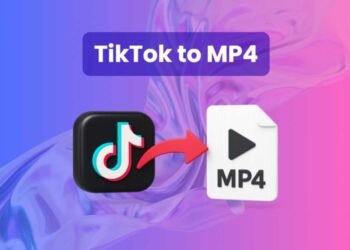A data science bootcamp is a rigorous and all-encompassing program created to get you ready for a career in the industry. programs may only last a few months, but they will get you ready for some of the most sought-after occupations in the US.
Individuals interested in a data science career can take rigorous, hands-on courses at data science bootcamps. Data science bootcamps may give participants a thorough understanding of both basic ideas and cutting-edge methods by providing a crash course in anything from Python, SQL, data visualization, Hadoop, and more.
Let us look at the prerequisites for enrolling in a data science bootcamp.
What is Data Science?
Data Science is a field that analyzes large amounts of data to discover unexpected patterns, anomalies, and insights that can be used to anticipate or decide on future events. Data science is a broad field that covers expertise in many other areas, including mathematics, business knowledge, statistics, machine learning, artificial intelligence, and related fields. Students taking a Data Science course should anticipate learning about numerous devices, programs, and machine learning techniques that aid in data analysis.
Almost every industry today, whether public or commercial, needs data science knowledge. Health and wellness, retail, web and application development, banking and finance, and governmental organizations are a few of the top industries where data science is essential.
What is a Data Science Bootcamp?
For people wishing to start a new profession in data science or a related subject, data science bootcamps are rigorous educational programs. They are categorized as a type of higher education because the majority of programs need applicants to hold a high school certificate or G.E.D.
Most data science bootcamps’ primary goal is to give students highly marketable technical data handling skills, after which it is the job of businesses to connect them with qualified individuals for open positions. Many boot camps offer career services, including mentorship, networking opportunities, and help for professional growth in order to achieve this goal.
The duration of data science bootcamps varies according to the amount of material covered in the curriculum and the number of hours of work required each week. Most need a weekly time commitment of between 15 and 40 hours and last between 10 and 36 weeks. These courses require between 150 and 1,400 hours to finish in total.
Why Opt for a Data Science Bootcamp?
When you don’t have any prior experience, a bootcamp is an excellent method to enter the profession of data science. Python, SQL, Matplotlib, statistics, modeling, and forecasting are just a few of the pertinent technical skills you’ll learn that data scientists employ. Numerous programs take use of their close connections to data scientists’ employers to stay current on the data skills demanded by the sector.
Most data science bootcamps incorporate practical projects into their curricula and let students hone their abilities on datasets taken from actual situations. These assignments give students a solid foundation for the kind of work they would be expected to perform on a daily basis in their future careers and during technical interviews.
Bootcamps help students become ready for a successful career by teaching them soft skills and assisting them with their job search in addition to teaching them hard technical abilities.
The fact that there are so many different businesses in need of data scientists makes it a fantastic time to enter the job market for data scientists. They need to hire data scientists in order to do this on a broad scale. This implies that there are always open positions for data scientists to apply for, and they frequently have a wide range of industry options to choose from.
Prerequisites for Enrolling in a Data Science Bootcamp
As its name implies, data is the central focus of data science. Therefore, a person’s love of data, comprehension of it, and capability to deal with it are the first and most crucial prerequisites for learning data science.
The wranglers of large data can be thought of as data scientists. Large, both organized and unstructured data sets, are analyzed by them. To process, analyze, and model data and produce meaningful findings, they mix Computer Science with mathematics, statistics, and other related fields.
- Strong Mathematical skills-The majority of data science experts have a solid foundation in mathematics, either from high school, college, or both. Data science is a conglomeration of a variety of academic disciplines, including economics, engineering, and physics. If you were skilled in calculus, algebra, statistics, and probability, you should be an expert in data science.
- Knowledge of SQL- SQL, or Structured Query Language, is generally used by data scientists and other professionals to create queries. Any profession with data will probably require at least the most fundamental SQL knowledge. Although most data science bootcamps, fortunately, teach SQL, you better be familiar with it before you start studying data science. Before learning data science, you should be comfortable with the basic principles. A thorough bootcamp can teach a newbie in data science SQL and a computer language like Python.
- Working knowledge of huge amounts of data- Large data sets need to be efficiently manipulated and analyzed by data scientists. So, before becoming a data scientist, it’s crucial to have some experience working on massive data sets.
Conclusion
Understanding and using the key technological frameworks for big data analysis are the first steps in mastering the area of data science. You’ll gain knowledge of the Hadoop and Spark development and programming frameworks, which are used to handle enormous volumes of data in a distributed computing environment, and you’ll become proficient in complicated data science methods and the implementation of those algorithms using R, which is the preferred language for statistical processing. You will succeed with a wide range of big data and data science technologies and approaches if you follow this comprehensive data science learning route.












